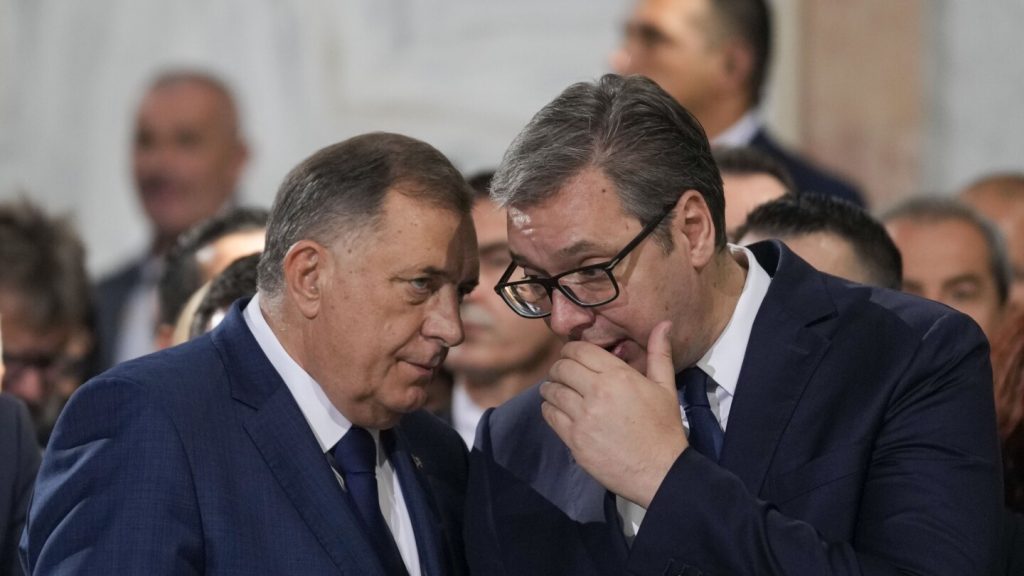Serbia’s President, along with the Bosnian Serb separatist leader, organized a nationalist gathering in Belgrade that called for unity among all Serbs in the Balkans. The event, known as the “All-Serb Assembly,” attracted thousands of Bosnian Serbs and individuals from neighboring countries. The message of unity has raised concerns in neighboring states, especially in light of the recent designation of July 11 as an international day of reflection for the 1995 Srebrenica genocide.
The assembly featured prayers, folk dancing, and a resolution emphasizing that Serbs are one people with a shared history and tradition. The idea of creating a unified political sphere for all Serbs in the Western Balkans has been a contentious issue, with historians and analysts linking it to the breakup of Yugoslavia in the 1990s. Despite the nationalist rhetoric at the gathering, both President Vucic and President Dodik sought to downplay any potential threats to regional stability.
President Dodik, who has been advocating for the Bosnian Serb-controlled region to split from Bosnia and join Serbia, emphasized the changing global landscape and the need for peaceful dialogue to solve regional problems. His close ties with Russian President Putin and Russia’s tacit support for the Bosnian Serb separatists have further fueled concerns about destabilization in the Balkans. The U.S., which has sanctioned Dodik for his separatist actions, remains committed to defending Bosnia’s unity.
Western officials view Russia’s involvement in the Balkans as an attempt to divert attention from its conflict in Ukraine and exert influence in the region. Despite Serbia’s aspirations for EU membership, it has refrained from joining Western sanctions against Russia, further complicating the geopolitical dynamics in the Balkans. As the nationalist sentiments among Serbs in the region continue to resonate, the potential for renewed tensions and conflicts remains a concern for regional stability.
The gathering in Belgrade highlighted the complexities of the Balkan region, where historical grievances and nationalist aspirations intersect with shifting global power dynamics. The calls for unity among Serbs, while rooted in shared identity and tradition, have the potential to reignite old conflicts and disrupt the fragile peace established through past agreements. As neighboring states and international actors monitor the situation closely, the challenge lies in finding a balance between recognizing cultural identities and ensuring peace and stability in the region. The Balkans remain a key geopolitical hotspot where competing interests and rivalries continue to shape the trajectory of the region’s future.


